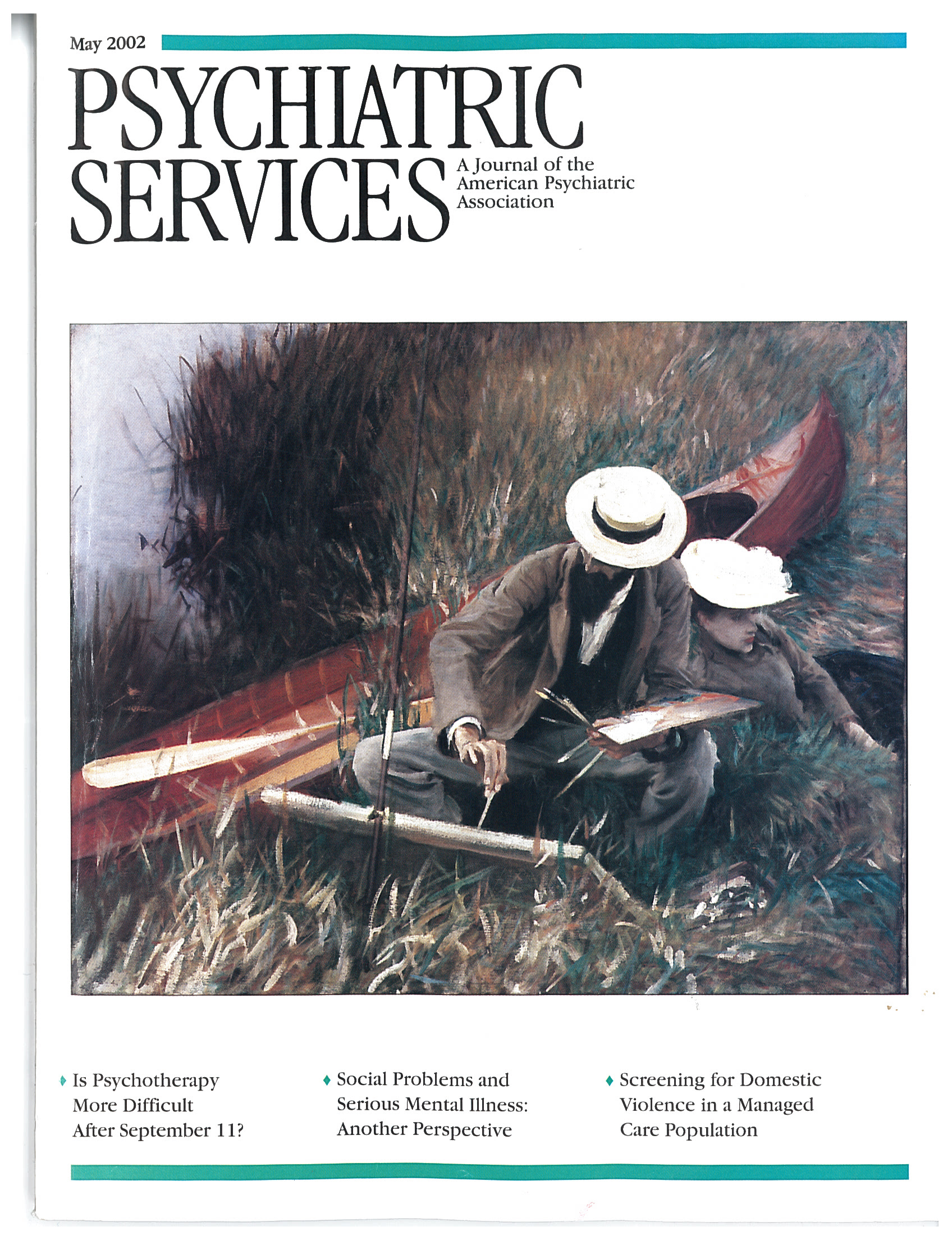To the Editor: In "Integrating Evidenced-Based Practices and the Recovery Model," which appeared in the November 2001 issue (
1), Dr. Frese and his colleagues contend that the benefits of the recovery model do not apply to "the most seriously disabled consumers." They also state that the recovery model is subjective and not based on scientific evidence. Although we are glad to see that the authors acknowledge that people with mental illness can recover, we are dismayed that they marginalized the recovery approach.
When people are in the greatest distress, they experience despair, isolation, hopelessness, and a lack of control. It is at those trying times that they need hope, social connection, and a belief that they can regain control of their life, which are the principles of the evidence-based recovery model. Use of approaches based on the recovery model is crucial at the beginning of the recovery process and throughout it. We know—we recovered from schizophrenia. We were able to begin recovery only when we felt we could connect and borrow someone else's hope until ours returned. Indeed, this is why people move on in their recovery. To wait and apply these principles only later in people's treatment may rob them of their chance to recover.
Research has shown that the principles underlying the recovery model are evidenced based (
2). An epidemiological study of a group of seriously disabled persons who were consumers of mental health services in Vermont showed that practices based on the principles of hope, social connection, and self-determination—those of the recovery model—were essential ingredients in the high rate of recovery in this group. A much lower rate of recovery was found in Maine, where treatment was based on maintenance and medication compliance, the essence of the medical model (
3).
Another study of the conditions best suited for recovery, the Soteria House study, found that persons experiencing their first episode of schizophrenia achieved more significant recovery when their treatment was provided in the context of relationships characterized by hope, trust, and self-determination rather than in accordance with the principles of the medical model (
4). In Falum, Sweden, persons experiencing psychosis who were treated according to the principles of the recovery model had better outcomes than those whose treatment followed the medical model (
5).
Currently, the benchmark for evidence-based practice is maintenance: symptom reduction and medication compliance. However, when community integration is used as the outcome measure, the recovery model is clearly more evidence based than the medical model.
The medical model, which is the underpinning of evidence-based practices, is described in the article by Dr. Frese and coauthors as being "highly paternalistic, emphasizing illness, weakness, and limitations rather than potential for growth." The authors state that people who are in the greatest distress should be treated by a "paternalistic, externally reasoned approach." This is the primary approach used in the mental health system today. When people are told they suffer from a permanent biological brain disorder, they feel they will never recover or regain control over their lives. This treatment approach has ensured that people remain hopeless, helpless patients and has made them indefinitely dependent on the mental health system.

